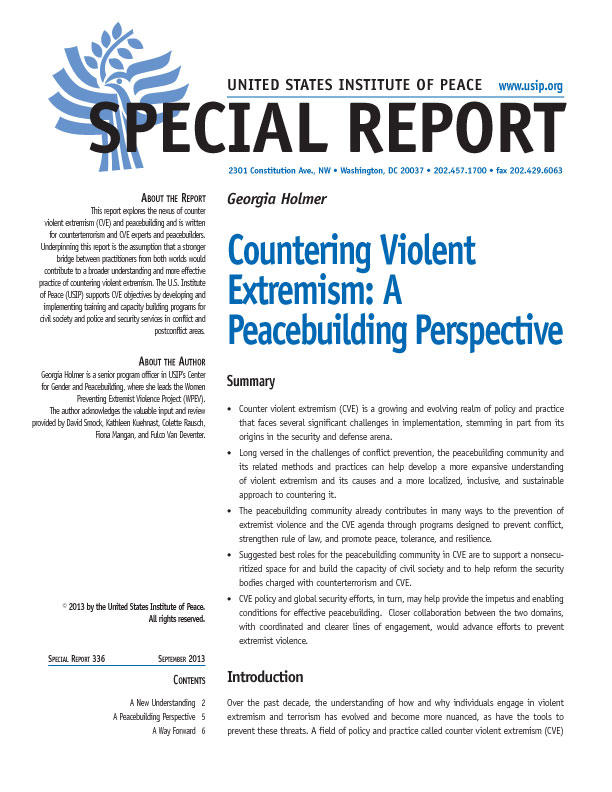A stronger bridge between security policymakers and the peacebuilding community, with coordinated and clearer lines of engagement, could better advance efforts to prevent violent extremism. A USIP expert examines the challenges facing CVE policy and practice and how peacebuilders can help to overcome them.
Summary
- Counter violent extremism (CVE) is a growing and evolving realm of policy and practice that faces several significant challenges in implementation, stemming in part from its origins in the security and defense arena.
- Long versed in the challenges of conflict prevention, the peacebuilding community and its related methods and practices can help develop a more expansive understanding of violent extremism and its causes and a more localized, inclusive, and sustainable approach to countering it.
- The peacebuilding community already contributes in many ways to the prevention of extremist violence and the CVE agenda through programs designed to prevent conflict, strengthen rule of law, and promote peace, tolerance, and resilience.
- Suggested best roles for the peacebuilding community in CVE are to support a nonsecuritized space for and build the capacity of civil society and to help reform the security bodies charged with counterterrorism and CVE.
- CVE policy and global security efforts, in turn, may help provide the impetus and enabling conditions for effective peacebuilding. Closer collaboration between the two domains, with coordinated and clearer lines of engagement, would advance efforts to prevent extremist violence.
About the Report
This report explores the nexus of counter violent extremism (CVE) and peacebuilding and is written for counterterrorism and CVE experts and peacebuilders. Underpinning this report is the assumption that a stronger bridge between practitioners from both worlds would contribute to a broader understanding and more effective practice of countering violent extremism. The U.S. Institute of Peace (USIP) supports CVE objectives by developing and implementing training and capacity building programs for civil society and police and security services in conflict and postconflict areas
About the Author
Georgia Holmer is a senior program officer in USIP’s Center for Gender and Peacebuilding, where she leads the Women Preventing Extremist Violence Project (WPEV). The author acknowledges the valuable input and review provided by David Smock, Kathleen Kuehnast, Colette Rausch, Fiona Mangan, and Fulco Van Deventer.
